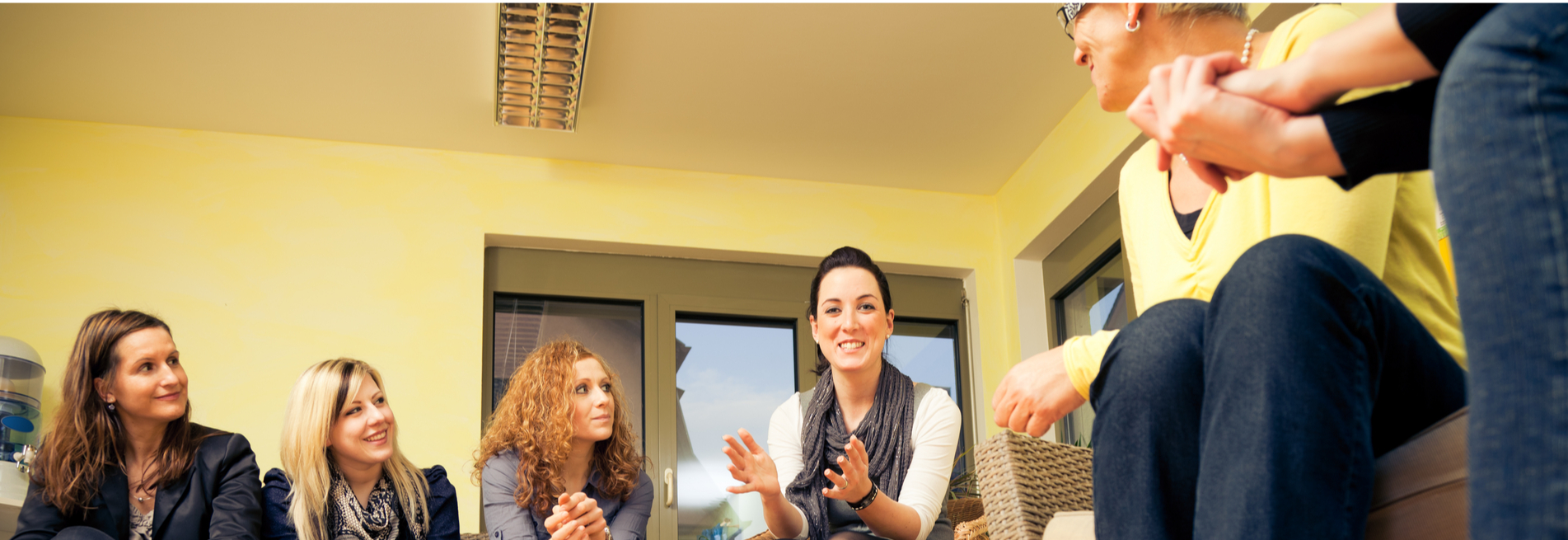
Family Therapy for Addiction
What Is Family Therapy for Addiction?
Table of Contents
If you or your loved one suffer from a substance problem, you may need family therapy for addiction.
This therapy addresses an often-overlooked factor in drug and alcohol abuse: the family unit.
Its positive effects may play a unique and critical role in recovering your sobriety.
This is true for adults of all ages.
It is also true for teenagers trapped in the frightening grip of addiction.
Family therapy is named for its specific focus on the link between addiction and family relations.
Why is this focus necessary? Troublesome situations within your family may make you more likely to abuse drugs or alcohol.
In addition, your pattern of substance abuse may have a profound, damaging effect on other family members.
Unless you receive the help that targets these problems, you may have a much harder time getting and remaining sober.
Immediate Placement in Addiction Treatment
Defining Your Family Unit
So, who are the people who play such an important role in the cause and effect of addiction? In other words, what makes up a family unit? The traditional family unit includes close relatives such as:
- Parents
- Children
- Sibling
It may also include stepparents, stepchildren, or step-siblings.
This is not the only way to define who is and is not a family member. Some people rely heavily on more distant relations, such as:
- Cousins
- Grandparents
- Aunts and uncles
In addition, some people create their own form of family that includes others not related to them. The specific blood ties are not what matters most. Instead, a family may consist of anyone with whom you form strong, lasting bonds of care or commitment.
Learn More About Family Therapy for Addiction
The Impact of Family on Addiction Risks
Families can have a major positive or negative impact on your chances of abusing drugs or alcohol. In many cases, these effects reach back to childhood.
Certain childhood factors can lower your risks. These factors include such things as:
- Developing strong bonds with your parents
- Having parents who set clear boundaries on your behavior
- Benefitting from a strong parental interest in your everyday well-being
On the other hand, certain other factors may make you more susceptible in the future. Examples here include:
- Not benefiting from strong parental bonds
- Having a parent who is involved in substance abuse
- Lacking any clear parental boundaries during childhood
Family can continue to influence your risks for substance problems in adulthood. For example, exposure to any serious family trauma may make you more like to abuse drugs or alcohol. Such traumatic events may include anything from divorce to domestic violence.
The Impact of Addiction on Families
The family impact of addiction also runs in the other direction. In other words, people with drug or alcohol problems may have a significant negative influence on their family members. This influence may take many forms and include such things as:
- Emotional or psychological disruption
- Exposure to acts of aggression or violence
- Loss of essential income
- A general instability in the home environment
Research shows that the impact of these issues is not always limited to the immediate family. Instead, it can grow until it reaches a broader range of friends and relations.
In addition, the impact may not be limited to a single generation. Too often, addiction continues to take its toll for decades or lifetimes to come.

Types of Family Therapy for Addiction
There is not just one form of family therapy for people with substance problems. Instead, there are multiple options. Each of these therapies is useful in certain situations.
They may also provide help for different groups of people.
Addiction treatment experts sometimes refer to these options as family-based therapies.
Family Behavior Therapy
Family behavior therapy, or FBT, is shown to help both adults and teenagers with substance problems.
It provides a benefit by placing addiction in a larger family context. This context includes any other factor that affects substance abuse risks.
Potential examples include everything from serious interpersonal conflicts to mistreatment and mental illness.
During FBT, you set specific goals for changing damaging behaviors within your family unit. When you meet with your therapist, you review your progress. You also look at ways that you can continue to improve.
Multidimensional Family Therapy
This form of therapy is designed to help teenagers who abuse drugs or alcohol. In many cases, these teens also suffer from serious behavior problems. The therapy gets its name because it does not only include the family unit.
Instead, care is coordinated with outside parties such as juvenile justice or school officials. Evidence shows that this approach is useful for even the worst kinds of substance problems.

Brief Strategic Family Therapy
Family therapy sometimes goes on for extended periods of time. However, this is not always necessary. Some families benefit from a brief strategic family therapy or BSFT.
A full course of BSFT takes just 12 to 16 therapy sessions to complete. The treatment focuses on changing specific, dysfunctional patterns of communication.
Functional Family Therapy
Your rehab plan may also include functional family therapy or FFT.
This therapy places emphasis on two main objectives. First, it aims to get you and your family fully engaged in your recovery efforts. It also uses multiple techniques to help your family unit change harmful behaviors.
Multisystemic Therapy
This form of adolescent care has goals that are similar to multidimensional family therapy.
However, it focuses more closely on factors such as neighborhood and peer influences.
Treatment includes both family sessions and one-on-one sessions with your therapist.
Free Insurance Verification Addiction Treatment
Learn More About Family Therapy for Addiction
If you are affected by addiction, it is important to do everything you can to recover. Without effective help, your condition may only get worse over time.
One of the many tools available for your recovery is family therapy. This therapy places a spotlight on the impact of the family on substance problems. It also takes a close look at the impact of substance problems on your family. Finally, family therapy uses a variety of methods to help you overcome any family-related issues.
When considering this kind of therapy, it is important to define what family means to you. For many people, the definition of this unit only includes close blood relatives. Others build their family unit around more distant relatives.
In addition, some people have families that include no blood relatives at all. All these definitions are valid. The important part is how you view the matter.
Family Therapy for Addiction Treatment at Emerald Isle
Your family may have had a big influence on your current struggles with drugs or alcohol. At the same time, your struggles may have a major effect on your family members. Family therapy, also known as family-based therapy, addresses these issues.
There are multiple forms of family therapy available. Main examples include family behavior therapy, functional family therapy, and brief strategic family therapy.
Each of these therapies is used in certain circumstances. In addition, each has its targeted group. You can find options for adults only, adults and teenagers, and teens only. Today, all main options are supported by scientific studies.
If you think you will benefit from family therapy, contact Emerald Isle today for more information. Every day, we use this form of treatment to help people from all walks of life. We feature options that cover every possible set of circumstances.